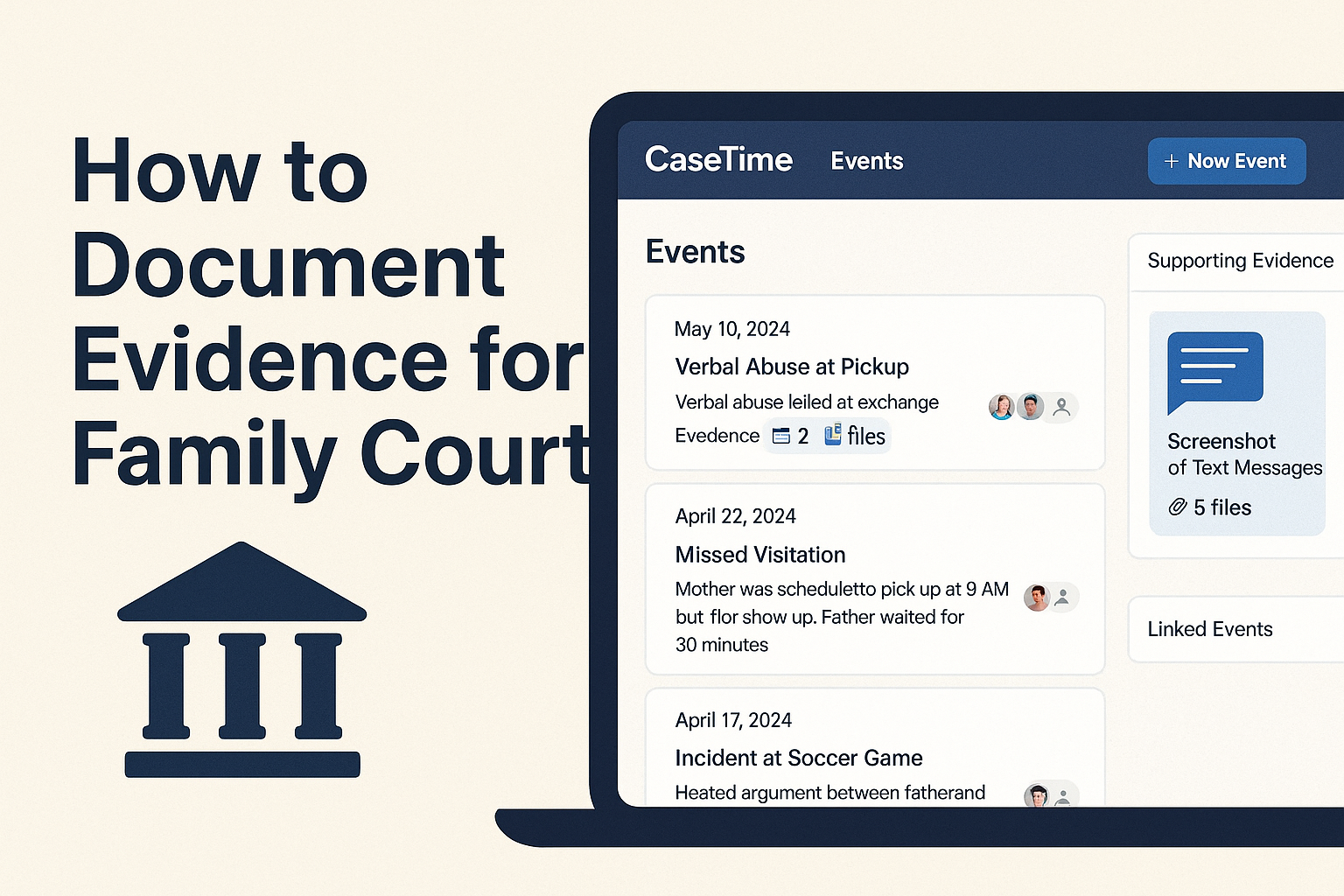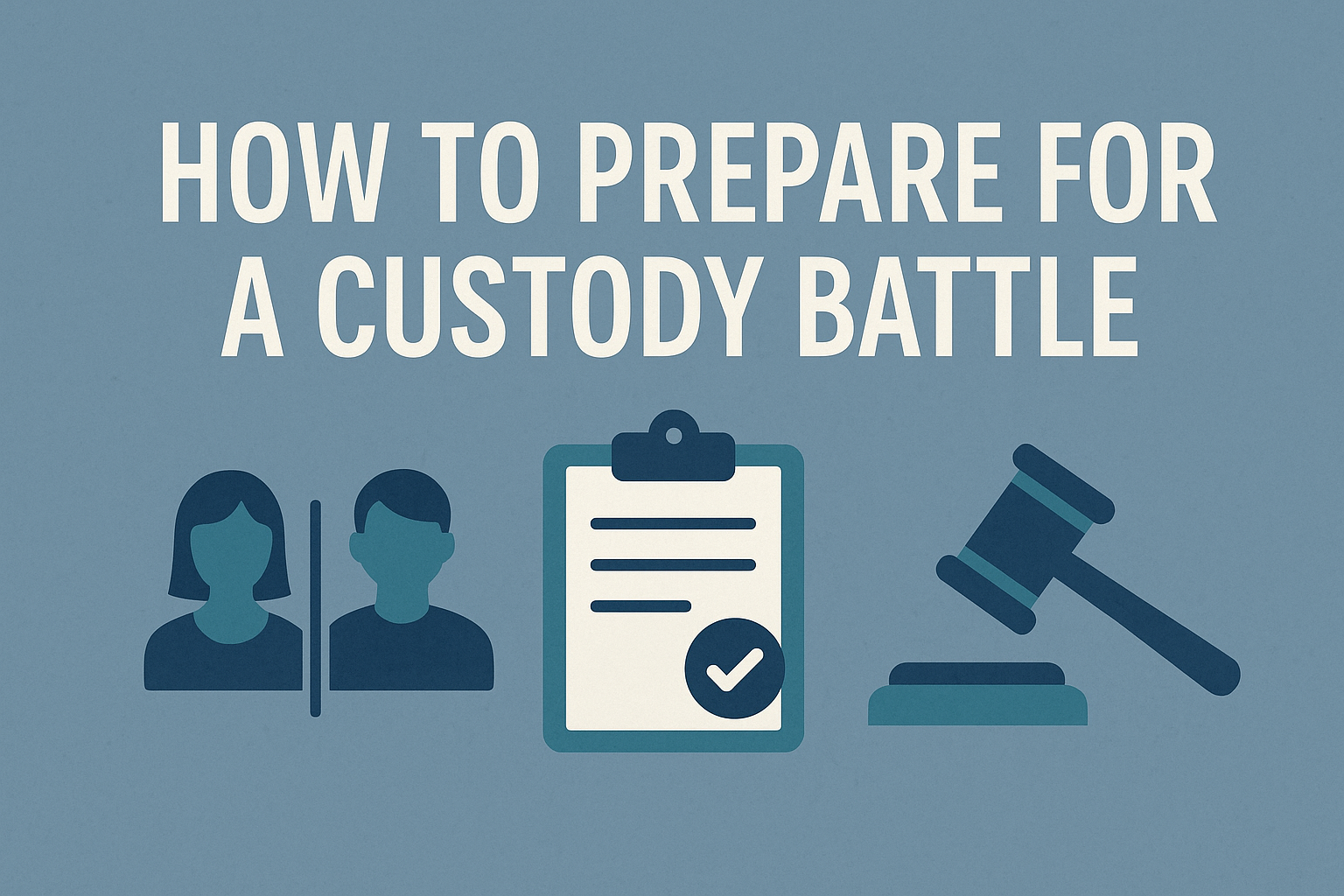
How to Prepare for a Custody Battle: A Practical Guide for Parents
Adam Cooper
|
Custody battles are never easy. Whether you’re facing an uncooperative co-parent or navigating the complexities of family court, the process can feel overwhelming, emotional, and uncertain. But being prepared—legally, emotionally, and practically—can make all the difference.
At CaseTime.com, we help parents organize, document, and present their custody case in a clear, court-ready format. In this article, we’ll walk through how to prepare for a custody battle with confidence.
At CaseTime.com, we help parents organize, document, and present their custody case in a clear, court-ready format. In this article, we’ll walk through how to prepare for a custody battle with confidence.
1. Understand What the Court Looks For
Family courts focus on the best interests of the child. That means judges typically consider:- Each parent’s ability to provide a stable home
- The emotional bond between the child and each parent
- Past caregiving roles and parenting time
- Any history of neglect, abuse, or interference
- Willingness to co-parent and communicate
2. Start Documenting Everything Immediately
Documentation is often the key to proving patterns of behavior. Courts don’t rely on hearsay—they want clear records.
With CaseTime, you can:- Log missed visitations or late pickups
- Record incidents like verbal abuse, no-shows, or concerning behavior
- Upload photos, files, and messages
- Create time-stamped, exportable reports
- Maintain a full event timeline with categories for clarity
3. Stay Organized and Professional
Custody battles often involve months of paperwork, emails, texts, and legal communication. Disorganized parents can appear unreliable—regardless of their actual parenting ability.CaseTime helps you stay on top of everything by centralizing:
- Legal filings
- Parenting plans and custody schedules
- Communications with attorneys or professionals
- Supporting documents and evidence
4. Stay Calm and Focused
Custody cases are emotionally charged. But outbursts, angry messages, or social media rants can work against you.Stay off public platforms. Keep your communication civil and short. Let your documentation speak for itself—not your emotions.
Tip: Use neutral tools like CaseTime to track everything privately and professionally.
5. Work With Professionals Who Respect Evidence
Whether you’re hiring an attorney or representing yourself, make sure your legal support values well-organized evidence.Attorneys love CaseTime because it reduces paralegal hours and makes building a custody case faster and more efficient. And if you’re self-representing, CaseTime gives you a clear structure to follow so you don’t feel lost.
6. Prepare for Mediation and Court
You may go through multiple stages:- Mediation: Show your co-parenting efforts and compromise. Bring documentation.
- Custody Evaluation: Be honest, consistent, and prepared to provide evidence.
- Court Hearings: Present only facts. Use timelines, records, and event logs.
Final Thoughts: Take Control of What You Can
You can’t control your ex. You can’t control the judge. But you can control your preparation, your documentation, and how you present your case.
Let CaseTime be your partner in that process.

